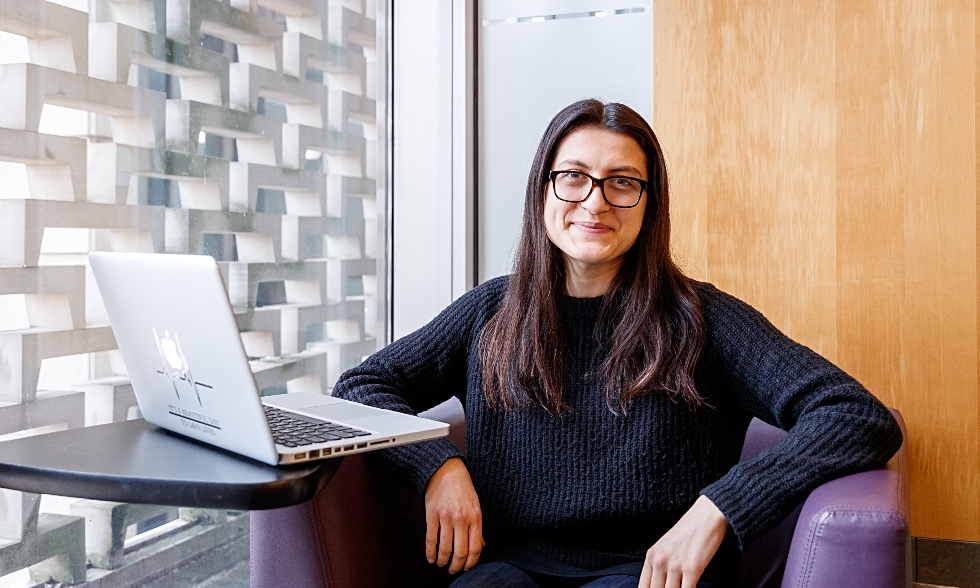OpenCon: An Eye-Opening Experience

Thanks to the McMaster University Library Travel Scholarship, Global Health student, Amanda Giancola, recently attended OpenCon, where she learned more about what she and others students can do to support Open Access, a worldwide movement to make scholarly publications, data and educational resources available without cost or access barriers. Photo by Sarah Janes.
I won’t lie. I didn’t know much at all about “Open” before I attended OpenCon 2018.
I knew that the year I took between my undergraduate and graduate studies had been riddled with frustration from wanting to keep up to date with research in my field, and being faced with paywalls. I also knew that, contrary to the thought that once I returned to the comfort of an academic institution I would not hit these paywalls, I CONTINUED to hit paywalls as a grad student.
But my narrow (and self-interested) vision of Open Access (OA) was completely transformed by participating in OpenCon – a global conference focused on issues related to OA held this year in Toronto which I attended thanks to the McMaster University Library Travel Scholarship.
The Open movement is a philosophy about how people should create and share knowledge and educational resources. Proponents of the Open movement believe that barriers to high quality education and resources should be eliminated. I learned at OpenCon that “Open” has a role to play in development, diversity, inclusion and equity-all values I hold as priorities, and values that enticed me to pursue a master’s degree in Global Health at Mac.
OpenCon took place over three days. The first two days were occupied by poignant stories from panelists, critical discussions on Open with colleagues, and collaborations on a variety of ideas to make research and education more open. On the third day, attendees participated in a “Do-A-Thon”, where we used the pent up motivation and inspiration from the previous two days to make immediate progress towards change in the Open world. I arrived at the Conference a little apprehensive about my capacity to participate in the Open movement in a meaningful way, but the Do-A-Thon completely unraveled this belief. Also quite reassuring was the fact that over 75% percent of my fellow OpenCon attendees were newcomers.
The panelists of the first two days forced me to reflect on my concept of openness. Who’s openness had I been aiming for? Who’s voices had I silenced by my definition? And who’s world views continued to be invisible in my world vision? These panelists also helped me to recognize my power and potential for creativity as an early career individual. For example:
Erzsebet Toth-Czifra, Open Science Officer at DARIAH EU (a consortium by researchers and for researchers), spoke about pushing the boundaries of Open science towards Open scholarship, and ensuring the representation of Humanities in Open education. Although Erzsebet had a science background (much like myself), it was encouraging to see that she was advocating for Open in a field other than her own.
Further, Abdullah Alghurabi, founder and CEO of Education Yemen spoke about how his organization was using USB storage devices and micro SD cards to save MOOC courses and share them across war torn areas. I was inspired to see the Open movement used to address complex global issues.
Having a better understanding of the Open movement has heightened my awareness of how I interact with Open Access and Open Educational Resources, or OER, on a daily basis. For those who are currently publishing or will be looking to publish in the near future, I urge you to consider doing so in an OA journal. Publishing in an OA journal will likely increase the visibility of your research and citation counts, minimize the submission and publication related costs,and decrease the time from acceptance to full-text availability.
Attending OpenCon 2018was an extremely valuable and enriching experience. The conversations and activities I engaged in surpassed topics of Open Access and OpenEducation, and shed light on other aspects of development that could be implemented using an Open Model. Should McMaster continue to pursue endeavors that promote the Open world to students, such as by providing the McMaster University Library Travel Scholarship to attend OpenCon, I encourage all of you to be Open to learning more!
Institutions and funding agencies around the world are adopting Open Access and Open Data policies that encourage researchers to make their scholarly work, including research data, freely available online in an open access journal, or a repository such as McMaster’s institutional repository, MacSphere. Learn more about how McMaster University libraries support Open Access


